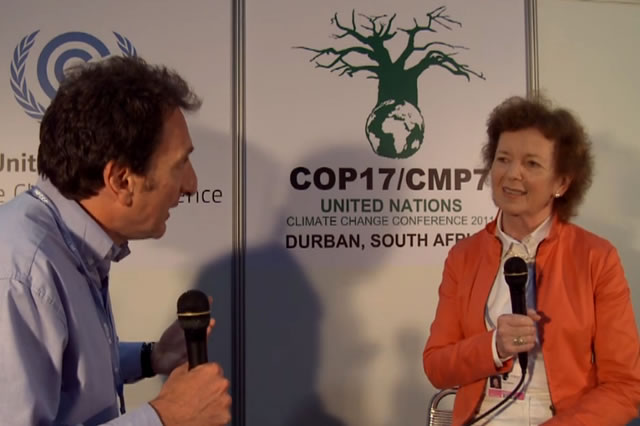With women also being at the heart of many households in the most climate vulnerable areas – both as care giver and as decision maker – there is a huge potential for them to act as agents of change.
As COP17 moves into its second week, heads of states and ministers join their delegations and the talks intensify, is the voice of women being represented sufficiently in the process?
Making up over 50% of the population – and 60% in some of the world’s poorest countries – the effects of climate change are more acutely felt by women.
With women also being at the heart of many households in the most climate vulnerable areas – both as care giver and as decision maker – there is a huge potential for them to act as agents of change.
Ahead of COP17 women’s day, we took at look at why gender and climate change is so important. While in most communities both the men and women, particularly in the developing world, are either already experiencing or will experience climate change vulnerabilities, research has shown that this impact is being felt worse amongst women.
Women farmers account for around 45-80% of all food production. As droughts, flooding and other natural changes put their agricultural livelihoods at risk – both limiting the food for the household and for selling – work becomes much harder and research by the UN found that it is the women and the girls who experience the most noticeable health decline.
In most communities it is also the women who predominately collect the fuel for the home for example firewood and agricultural crops, and water. With women travelling further distances to find these sources of energy, they have less time for domestic tasks, less time to earn money and are also more at risk of injury or sexual harassment.
Finally with many climate impacts – flooding and drought – disease and illness spreads and with the traditional role of women as mother and caregiver, this puts even more stress of their daily lives.
When Mary Robinson spoke at the Climate Change Studio last week, she said: “It is an issue that is fundamental to climate justice, to the idea of putting a human face on climate, the importance of both food and nutrition security and women for agents for change who are going to bring about the changes on the ground.
“They will be the ones who will have to adapt to the climate shocks that we have so they need to be empowered, they need to be valued and they need to be at the table at decision making. They are not there enough.”


